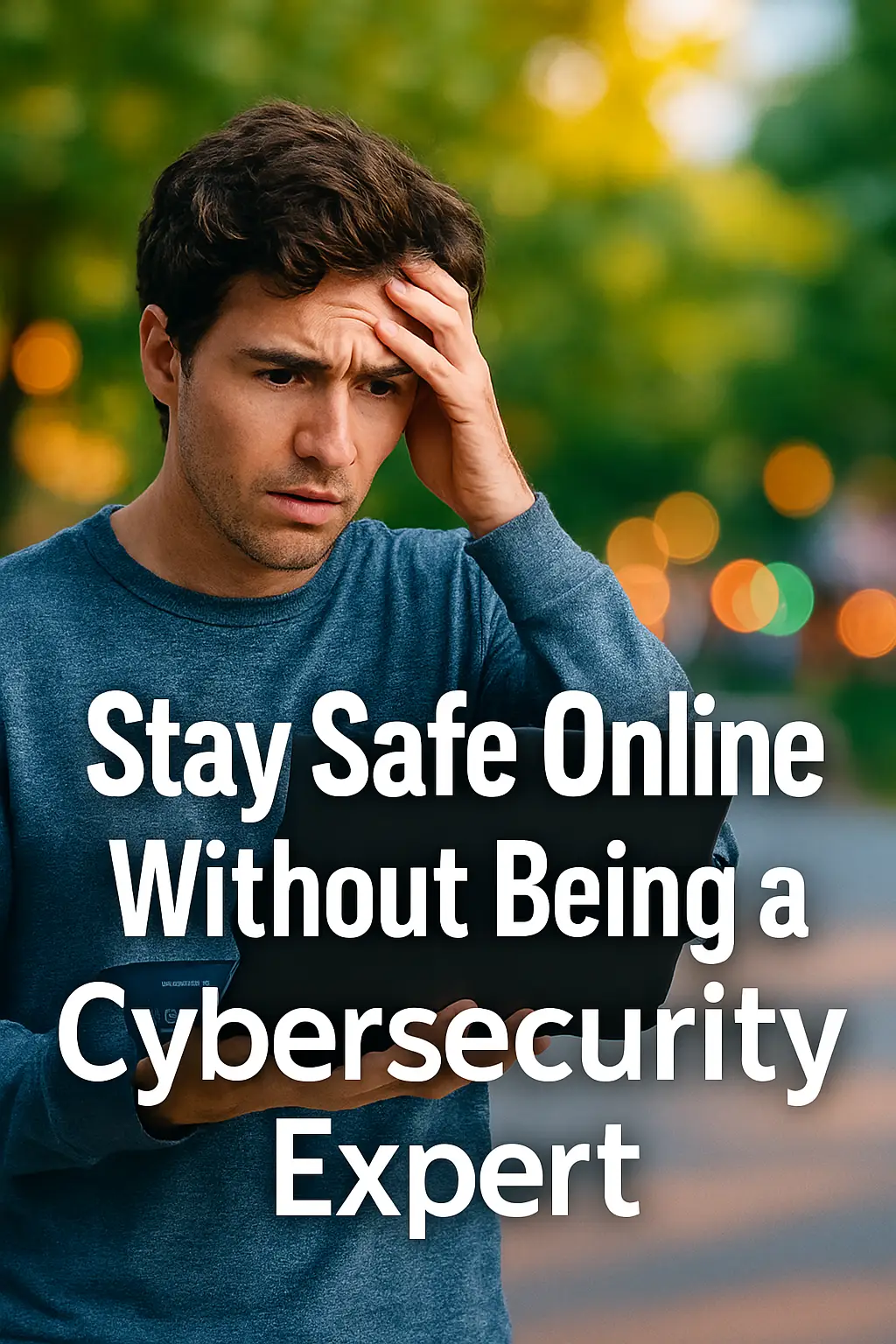Stay Safe Online Without Being a Cybersecurity Expert
Staying safe online in 2025 doesn’t require you to be a cybersecurity expert. In order to stay safe online, you don’t have to be a hacker, programmer, or tech genius to protect your data, identity, and peace of mind. All you need are smart digital habits and a little awareness.
Unfortunately, many people make simple online mistakes that leave them vulnerable — and cybercriminals are always ready to take advantage.
In this guide, we’ll cover the most common cybersecurity mistakes people make and how you can avoid them to stay safe online, even without deep technical knowledge.
🧠 Common Cybersecurity Myths
Before we jump into the mistakes, let’s bust a few myths that keep people from taking their online safety seriously:
🚫 “No one would want to hack me.”
✅ Hackers target regular users because they assume you’re not protected.
🚫 “Antivirus is enough.”
✅ While antivirus helps, cybersecurity is about behavior — not just tools.
🚫 “Only companies or big accounts get hacked.”
✅ The truth is, everyday users are top targets for scams, identity theft, and data leaks.
⚠️ Big Mistakes That Make You Vulnerable (And How to Fix Them)
🔴 1. Using the Same Password Everywhere
If one account is compromised, hackers can access everything.
Fix it:
Use a password manager like:
-
Bitwarden (free)
-
1Password, Dashlane, or your browser’s built-in manager
✅ Turn on 2FA (two-factor authentication) on all accounts
🔴 2. Ignoring Software Updates
Updates patch security holes. Delaying them gives hackers more time to exploit weaknesses.
Fix it:
Enable automatic updates on your phone, laptop, browsers, and apps.
🔴 3. Clicking Suspicious Links or Attachments
Clicking the wrong link could install spyware, ransomware, or steal login credentials.
Fix it:
-
Never click unknown links, especially in emails or DMs
-
Hover over links to preview them
-
Only visit trusted, secure websites (look for HTTPS)
🔴 4. Using Public Wi-Fi Without Protection
Free Wi-Fi at coffee shops, airports, or hotels is risky.
Fix it:
-
Use a VPN (like ProtonVPN, NordVPN, or Windscribe)
-
Avoid logging into sensitive accounts when using public Wi-Fi
🔴 5. Oversharing on Social Media
Hackers use info like birthdays, schools, and even pet names to guess passwords or security questions.
Fix it:
-
Keep your social profiles private
-
Avoid sharing real-time travel, IDs, or private family details
-
Don’t answer “fun quizzes” that ask for personal info
🔴 6. Not Checking Website URLs
Fake websites (phishing) are designed to look exactly like real ones.
Fix it:
-
Always double-check the domain
-
Look for HTTPS and the 🔒 lock icon
-
Bookmark official sites to avoid mistyped URLs
🔴 7. Skipping Data Backups
What if your data is lost, deleted, or locked by ransomware?
Fix it:
-
Back up your files regularly to cloud storage and an external hard drive
-
Set up automatic weekly or monthly backups
🔴 8. Not Logging Out of Shared Devices
Especially in internet cafés, libraries, or shared workspaces, staying logged in is risky.
Fix it:
-
Always log out of your accounts
-
Use incognito mode or auto-clear browser cookies (Brave Browser is great for this)
🛡️ You Don’t Have to Be a Tech Guru to Stay Safe Online
Think of cybersecurity like hygiene. You don’t need to be a dentist to brush your teeth — but you still do it every day to stay healthy.
Similarly, you don’t need to be a cybersecurity expert to stay safe online. These mistakes are easily avoidable with basic awareness and simple habits.
🧰 Tools That Help You Stay Safe Online (Even if You’re Not Techy)
| Tool | Purpose | Why It Helps You Stay Safe Online |
|---|---|---|
| Bitwarden | Password Manager | Creates and stores strong, unique passwords |
| ProtonVPN | VPN | Encrypts your connection on public Wi-Fi |
| Grammarly | Email Tone Checker | Helps spot phishing email tone |
| Malwarebytes | Malware & Spyware Scanner | Finds threats your antivirus may miss |
| DuckDuckGo | Private Search Engine | Doesn’t track or store your searches |
💬 Final Thoughts
You don’t need to take a cybersecurity course to protect yourself — you just need to know what not to do and build some easy habits into your online routine.
Stay smart. Stay alert. Stay safe online — no tech degree required.




